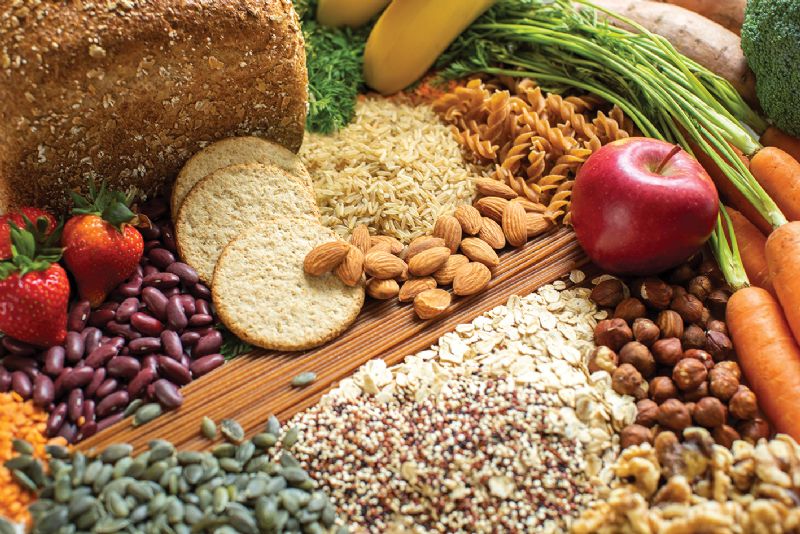- Home
- News, Articles & Reviews
- All Health & Beauty
- Looking Good, Feeling Great
- Medical Health
- Mirror Mirror on the Wall
- Style & Fashion
- General
- Vintage & Sustainable Fashion
We are hiring! Please click here to join our growing magazine delivery team in Gloucestershire!
Areas
Health & Beauty
Archive

The role of carbohydrates and fats in your nutrition plan
All Areas > Health & Beauty > Looking Good, Feeling Great
Author: Will Mbanga, Posted: Monday, 26th July 2021, 12:00
Carbohydrates (carbs) and fats are very important for muscle recovery and traditionally get a bad rap because of their potential for weight gain problems.
Carbs are important for replenishing glycogen stores, which aid in providing muscles with energy, and there is evidence to suggest that they also play a role in optimising protein absorption in muscles.
The amount you should consume depends on how active you are. For fairly sedentary people, 3-5 grams per kg of bodyweight may be enough carbohydrate to ensure healthy functioning and stable weight.
For people focusing on fat loss in addition to building muscle, carbs should also be lowered proportionally and, ideally, complex carbs should be incorporated, as these supply the most ‘pound for pound’ nutrition of all carbs in supporting the recovery process.
For the more active person, 8-10 grams per kg of bodyweight may be necessary to supply the body enough energy on an active recovery day (i.e. a non-training or light training day involving low intensity exercise).
We associate fatty foods as ‘bad’
When it comes to addressing fat intake, a lot of people switch off because we have become conditioned to automatically associate fatty foods as ‘bad’, which is only half of the story. Healthy fats are an important part of a balanced diet and should typically account for between 20-35% of your total caloric intake. This range is variable depending on training goals and nutritional needs.
Your fat intake on recovery days should be based on one of two options; you either lower your fat intake because you know you’re going to be less active, especially if weight-loss is a focus. Alternatively, you look at it as a recovery day and build in the option to have ‘cheat meals’ (and risk the temptation of over-indulging).
Either way, it’s important to remember that there is a difference between healthy and unhealthy fats. Healthy fats include those found naturally in foods such as avocados, nuts, meat and olive oil for example, while unhealthy fats tend to be those found in processed foods (those yummy cakes, cookies, and crisps we love so much!).
In addition to these two important macronutrients, ensuring you have adequate amounts of the ‘Macro-nificent Seven’ (protein, carbs, fat, dietary fibre, vitamins, minerals and water) is key to optimising the relationship between your training goals and outcomes.
Ensure an appropriate intake of macronutrients
For some people, calorie counting and measuring macros is useful – for others, not so much! Either way, ensuring that your intake of appropriate levels of all macronutrients is sufficient for your exercise intensity, training goals and maintaining a balanced diet is critical.
By optimising recovery day nutrition alongside your overall nutrition plan, you will give yourself the very best chance of meeting your training goals through being fuelled/refuelled for your next training session, providing sufficient nutrients for muscle growth and repair, and maintaining your exercise intensity levels.Copyright © 2025 The Local Answer Limited.
Unauthorized use and/or duplication of this material without express and written permission from this site's author and/or owner is strictly prohibited. Excerpts and links may be used, provided that full and clear credit is given to The Local Answer Limited and thelocalanswer.co.uk with appropriate and specific direction to the original content.More articles you may be interested in...


© 2025 The Local Answer Limited - Registered in England and Wales - Company No. 06929408
Unit H, Churchill Industrial Estate, Churchill Road, Leckhampton, Cheltenham, GL53 7EG - VAT Registration No. 975613000You are leaving the TLA website...
You are now leaving the TLA website and are going to a website that is not operated by us. The Local Answer are not responsible for the content or availability of linked sites, and cannot accept liability if the linked site has been compromised and contains unsuitable images or other content. If you wish to proceed, please click the "Continue" button below:




